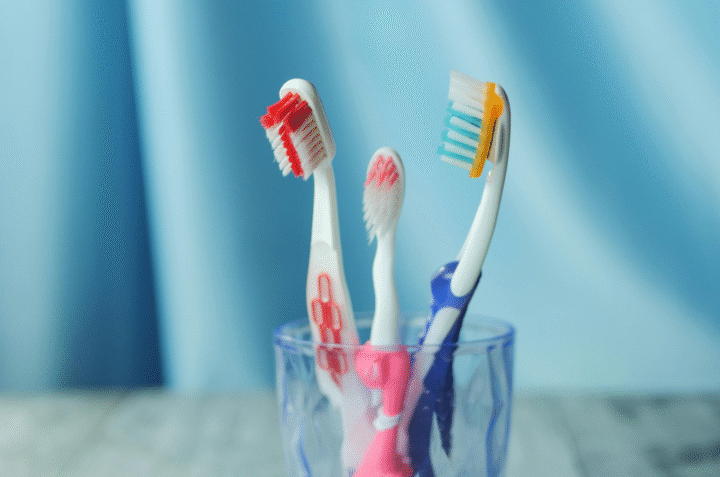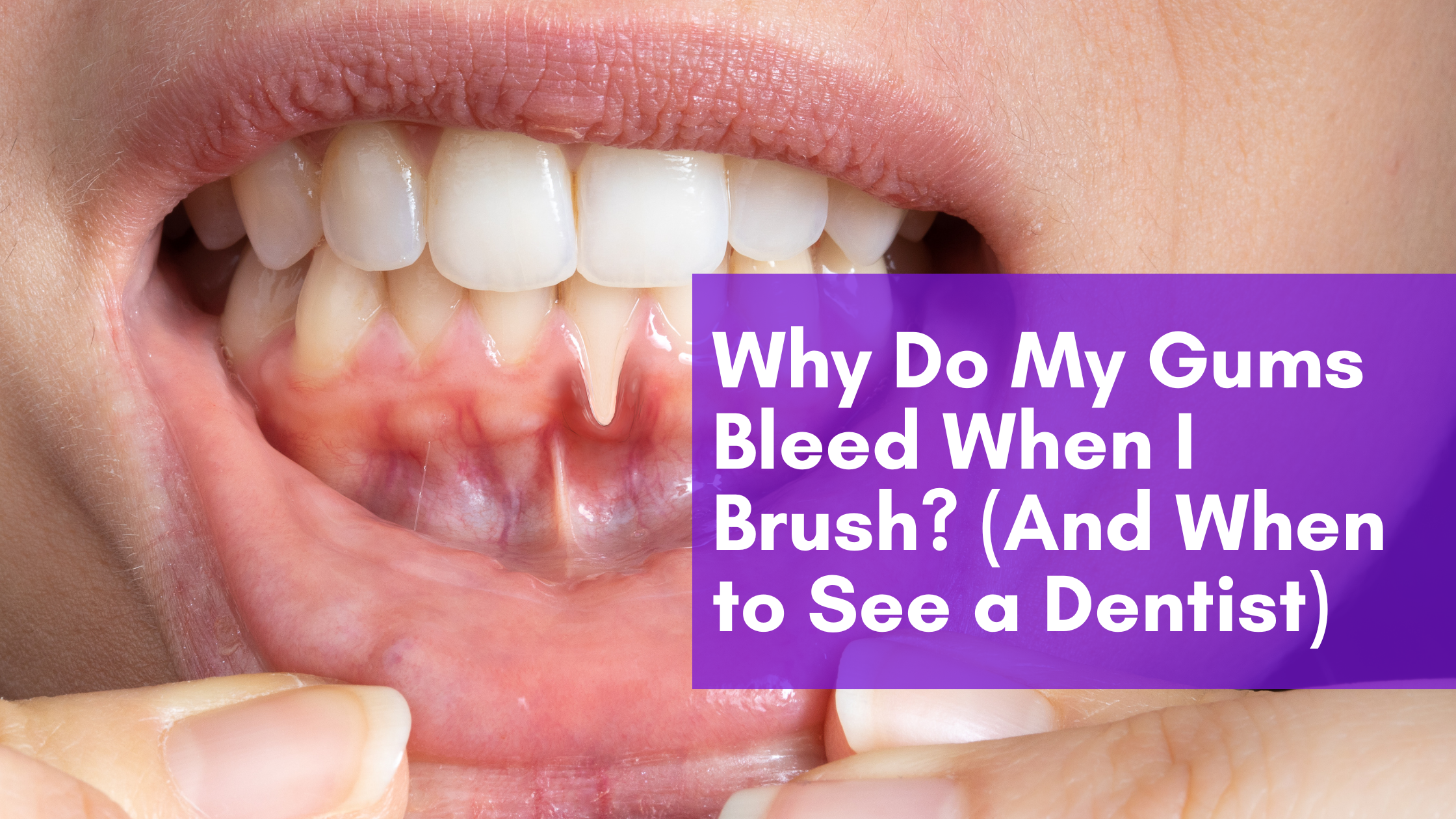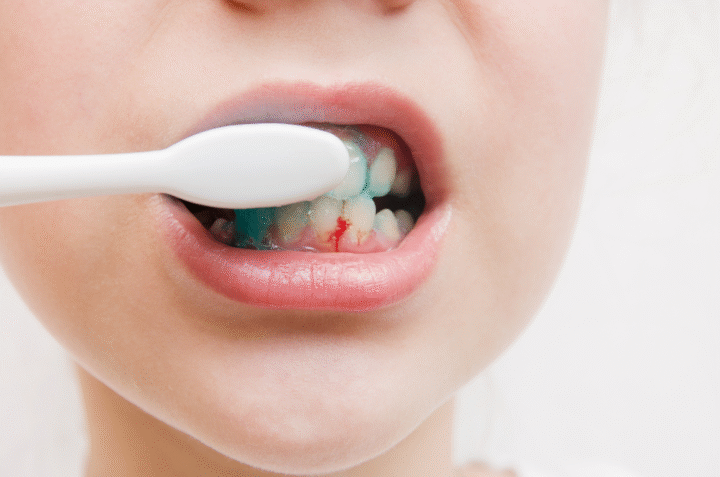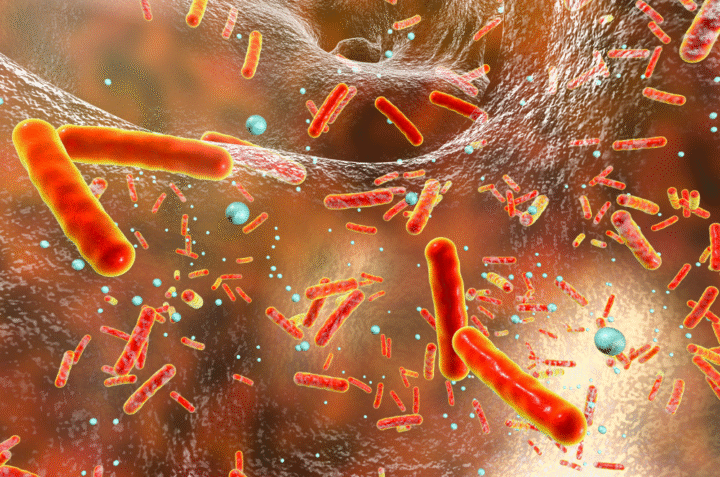Sometimes, brushing too hard can cause your gums to bleed, but we’ve seen many cases related to gum disease, vitamin deficiencies, or other oral health issues.
At Sheehan Dental in Palos Park, we’ve had patients come in with all sorts of factors, so it’s never just down to one cause. We provide our dental patients with comprehensive oral health care evaluations & expert treatment to the Palos Park Community and Surrounding areas.
The good news: Bleeding gums can often be treated and prevented before they become something serious.
Why Your Gums Bleed (Common Causes)
If this is the first time you’re seeing your gums bleed, don’t panic. And if it’s happened several times, don’t be quick to assume you have gum disease either.
Bleeding gums cause varies, and it’s better to understand what the possibilities could be:
Gingivitis (Early Gum Disease)
Plaque hardens into tartar at your gumline, causing irritation.
Left untreated, it progresses into periodontal disease, which can result in tooth loss.
Aggressive Brushing
Ever wonder why your dentist recommends soft bristles over hard bristles?
This is it. Scrubbing with a hard-bristled brush doesn’t equal “cleaner teeth.”
Instead, it scratches enamel and makes gums more vulnerable, which can lead to bleeding.
Flossing Habits
If you’ve just started flossing again, your gums may bleed for a few days. This much is normal.
But if it continues, it’s not just about technique, it could be early inflammation.
Medications
Blood thinners and even certain heart medications can increase gum bleeding. This is why dental professionals always ask about your health history.
Vitamin Deficiencies
Low vitamin C weakens gum tissue, and vitamin K affects clotting.
The same can be said for Vitamin A, Calcium, and Phosphorus. In fact, there’s been a lot of interest lately in Vitamin D, which can lead to tooth mineralization and periodontal diseases.
While it’s not the strongest factor for bleeding gums, vitamin deficiencies can impact your oral health.
Bleeding gums are not just a “cleaning issue.” They’re an opportunity to catch small problems early, before they turn into painful (and costly) ones.
When Are Bleeding Gums Not Normal? (Don’t Ignore These Signs)
A little blood once in a while? Maybe not urgent.
But consistent bleeding is your bad news. Other signs you might notice that don’t involve “bleeding” but are linked to the condition include:
- Swollen or Tender Gums: Inflammation is your immune system fighting plaque bacteria, and it doesn’t back down without help.
- Chronic Bad Breath: Persistent halitosis means bacteria thriving below your gumline.
- Receding Gums: If your teeth look “longer” than they normally do, it’s because your gums are “pulling” away or receding.
- Loose or Shifting Teeth: This is a late-stage gum disease. Imagine neglecting months of bleeding gums.
What’s scary isn’t so much that your gums are bleeding, but rather the underlying condition.
For those that have serious or major gingivitis, the complications can impact your overall health.
How Bleeding Gums Can Complicate Your Life
If the cause is gum disease, picture this:
Bacteria live in your plaque, which is also mixed in with your saliva. If you haven’t had a dental cleaning in a while, all the plaque builds up and bacteria thrive.
That’s not the worst part.
Gum disease is a chronic inflammation in your mouth.
Inflammation chemicals like cytokines and C-reactive protein travel in your bloodstream, causing your blood vessels to easily clog.
The same is true for bacteria thriving in your plaque or underneath your gumline.
Now, how much time do you think it would take for bacteria and inflammation chemicals to reach your arteries and blood vessels around your heart?
Seconds? Minutes? But at the same time, if it’s happening on a daily basis, then…
Heart disease becomes more likely.
Periodontal (gum) disease sounds harmless because a lot of people think it only affects their gums.
But really, untreated gum disease is linked to systemic diseases, such as heart disease, diabetes, respiratory diseases, Rheumatoid arthritis (RA), and even pregnancy complications.
What starts in your mouth doesn’t always stay there.
So, if your gums bleed for more than a week despite gentle brushing and flossing, it’s not “normal.”
When to See a Dentist (From Hesitation to Action)
You should schedule a dental checkup immediately if you notice:
- Any looseness in your teeth
- Puffy, tender gums or consistent bad breath
- Receding gumlines or sensitivity when chewing
- Bleeding that lasts more than a week despite gentle brushing and flossing
I always tell my patients:
Plaque hardens into tartar in as little as 48 hours. Once that happens, brushing and flossing alone won’t fix the problem.
In several cases, we’ve had a few emergency calls. During a dental emergency, it’s strongly encouraged to call your dentist.
There are also steps you can take during a dental emergency, depending on your case.
How to Prevent Bleeding Gums

I know this may sound redundant, but one of the best ways to prevent your gums from bleeding is simple.
And it boils down to three parts:
- Personal Care
- Lifestyle and Nutrition
- Professional Dental Care
Personal care is what you’ve been told your whole life: brush daily.
But, no hard scrubbing – move in circular motions.
Next, it’s pretty much all your greatest hits: Alcohol-free mouthwash and flossing.
For lifestyle and nutrition, make it a point to eat high Vitamin C and Vitamin K foods such as bell peppers and leafy greens like spinach or broccoli.
Lastly, professional care (where most seem to fail at).
This includes routine dental cleanings along with:
- Scaling & Root Planing: Deep cleaning beneath the gumline to fight early gum disease before it spreads.
- Periodontal Maintenance: Regular checkups to keep gum disease from returning.
If you want more tips for maintaining healthy gums, we have a full list here.
Why Choose Sheehan Dental in Palos Park
We understand that everyone has their own fears and objections around dental care.
And we’re not here to force our patients, but if you’re open and ready to getting dental treatment whether it’s more general or cosmetic reasons, we offer a variety of dental services and:
- Pediatric Dentistry: Perfect for kids or patients with dental anxiety. We take time to explain every step.
- Family-Focused: We’ve been serving the Palos Park community for decades and offer flexible scheduling for busy parents and professionals on the go.
- Trusted Local Experts in General and Cosmetic Treatments: Whether you’re coming in for a routine cleaning, root canal, tooth extraction, dental implant, dental crown, or veneer, we can handle it all.
FAQ: Bleeding Gums Explained
Is it normal for gums to bleed when brushing?
If you brush too hard or you’re using an old toothbrush, the bristles can hurt your gums. Persistent bleeding, on the other hand, is a sign that something needs attention.
Can bleeding gums heal on their own?
Bleeding gums can heal on their own, provided it’s a normal case of aggressive brushing. However, serious conditions like gum disease won’t resolve without treatment.
What vitamin deficiency causes gums to bleed?
Vitamin C and K deficiencies can contribute to your gums bleeding, but gum disease is the most common cause.
Do bleeding gums mean I have gingivitis?
Bleeding gums don’t always mean you have gingivitis. A dental checkup is the only way to know for sure.
When should I see a dentist for bleeding gums?
If the bleeding lasts for 3 days straight, or if you notice other signs like swelling, pain, or bad breath, contact your dentist immediately.
In Need of Bleeding Gums Treatment?
Book your dental checkup at Sheehan Dental in Palos Park today or call 708-671-1510 to have your gums checked and get treatment ASAP.




